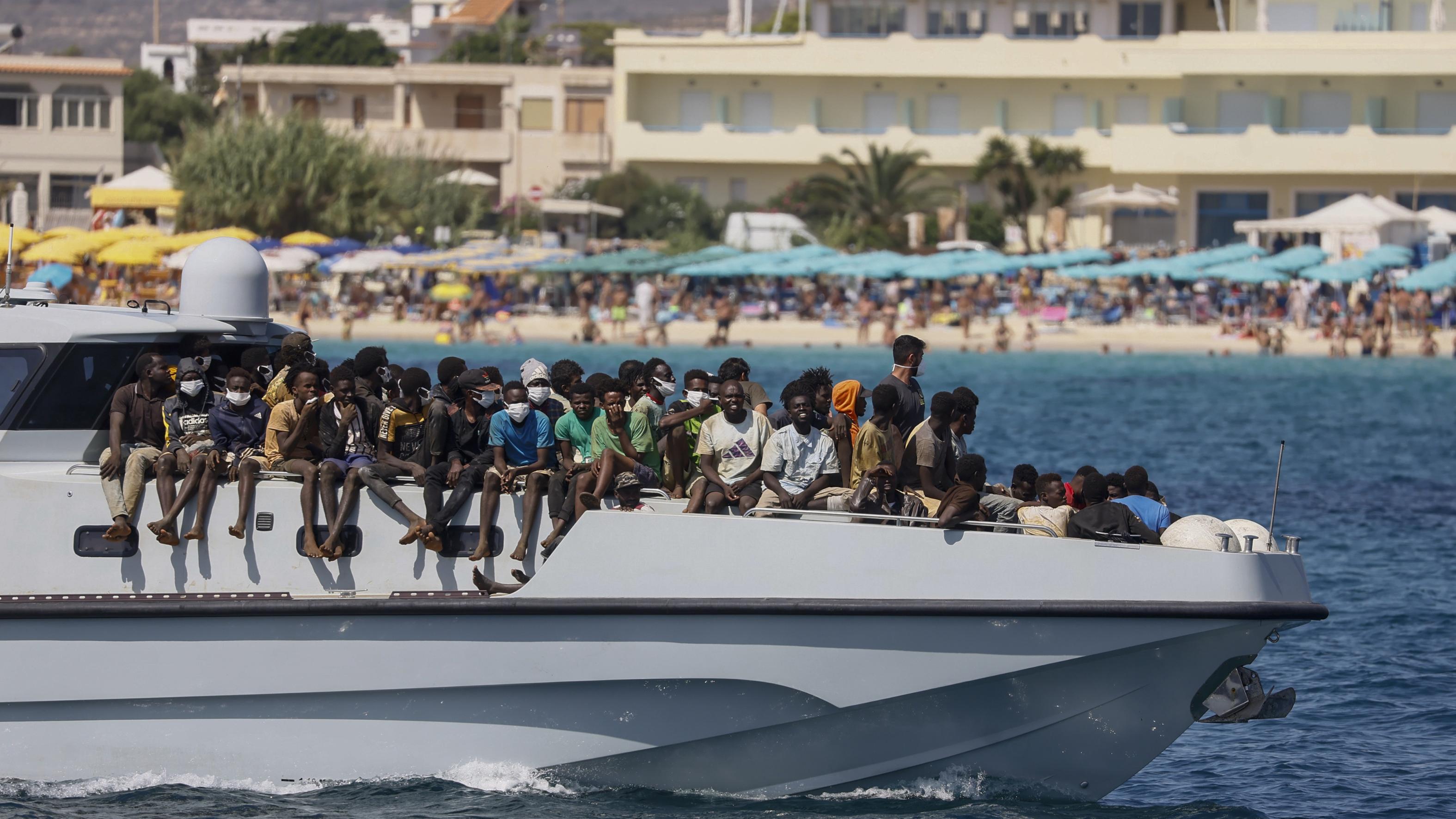 Migrants sit on the deck an Italian Coast Guard vessel as they are taken to the Lampedusa Island after being rescued at sea, Sept 15, 2023. (PHOTO / LAPRESSE VIA AP)
Migrants sit on the deck an Italian Coast Guard vessel as they are taken to the Lampedusa Island after being rescued at sea, Sept 15, 2023. (PHOTO / LAPRESSE VIA AP)
BRUSSELS - Envoys of the European Union's 27 member states on Wednesday reached a deal on sharing out the task of caring for refugees and migrants in crisis situations.
The agreement, which will form the basis of negotiations between member states and the European Parliament, would give countries options to adjust asylum and migration rules in times of crisis.
Member states facing large flows of migrants could speed up procedures and ask for solidarity contributions from other EU countries, in terms of relocating asylum seekers or financial help
Member states facing large flows of migrants could speed up procedures and ask for solidarity contributions from other EU countries, in terms of relocating asylum seekers or financial help.
"This a real game changer that allows us to advance negotiations," European Commission President Ursula von der Leyen said in a post on X, formerly known as Twitter.
READ MORE: Migration pushes EU population back to growth in 2022
"I'm very happy that member states have now agreed on the crisis regulation, which is an important piece of the puzzle in the migration and asylum pact," Swedish migration minister Maria Malmer Stenergard said.
"Now we can move on with the negotiations between the Council, the Commission and the European Parliament. It is important to get the pact in place, to ensure order at the EU's external borders and reduce flows."
Wednesday's meeting was the last chance to seal a deal before the bloc's 27 national leaders meet in Spain's Granada on Thursday and Friday, where they are due to discuss irregular migration amid increased arrivals across the Mediterranean, including to the Italian island of Lampedusa.
A dispute over NGOs picking up people in the sea prevented a deal among the EU's migration ministers last week but the bloc is still keen to get it done ahead of key elections in Germany, Poland and a pan-European parliamentary vote in 2024.
READ MORE: EU talks migration as Italy, Germany worry over increased arrivals
Countries like Poland and Hungary remain staunchly opposed to hosting any people arriving from the Middle East and Africa but the 27 can still get a majority agreement that the two alone cannot block.


